This project examines gender dynamics in Lagos’ public spaces, particularly within markets. It investigates the historical and contemporary influence of market women, particularly through the Iyaloja’s role. Through analysis of market layout and structure, the project seeks to identify how these features might limit women’s agency. To address these limitations, the project seeks collaborative strategies to empower women and restore their agency within these dynamic urban spaces.
Gender & Public pace
The traditional definition of public space – freely accessible, publicly owned areas for everyone’s enjoyment – doesn’t quite fit the bustling reality of cities like Lagos (Bravo et al., 2022). Here, many leisure areas operate for profit. This raises a crucial question: how do we define a public space in Lagos? Research suggests that African cities like Lagos view public spaces through a wider lens, encompassing cultural and social contexts (Bravo et al., 2022). In Lagos specifically, a public space can be as simple as the open areas between buildings where people gather and interact.
Marketplaces, for example, become a key point of discussion when considering public spaces and women. While offering economic opportunities for women to participate in the city’s commerce, these spaces can also present challenges related to safety and harassment. This tension between empowerment and vulnerability underscores why marketplaces are crucial for interventions aimed at improving Lagos’ urban spaces.
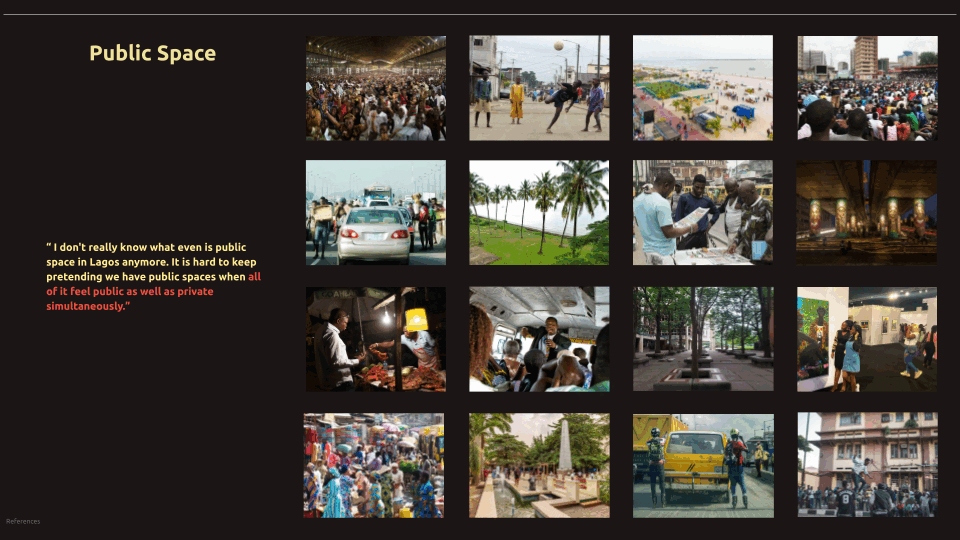
Women’s Agency in Marketplaces
Marketplaces in Lagos, and across Nigeria, hold a deep historical significance for women’s agency. The Aba Women’s War serves as a powerful example. According to the National Archives (2022), thousands of Igbo market women, protested against unfair taxation imposed by British colonial rule, in November and December of 1929. While the protests were ultimately suppressed, the sheer scale and intensity of the protests forced the British administration to rethink their taxation policies. This uprising, fueled by the threat to their economic livelihood, became a pivotal moment in Nigerian history.
While large-scale documented market protests like the Aba Women’s War might not be as prevalent in Yoruba history, we see this legacy embodied in strong individual leaders who mobilized women. Alimotu Pelewura, the Lagos Iyaloja during the 1930s and 40s, serves as a powerful example. Her fight against unfair taxation and price controls by the colonial government demonstrates this same tradition Nigerian women advocating for their rights within the marketplace (Somotan, 2018).
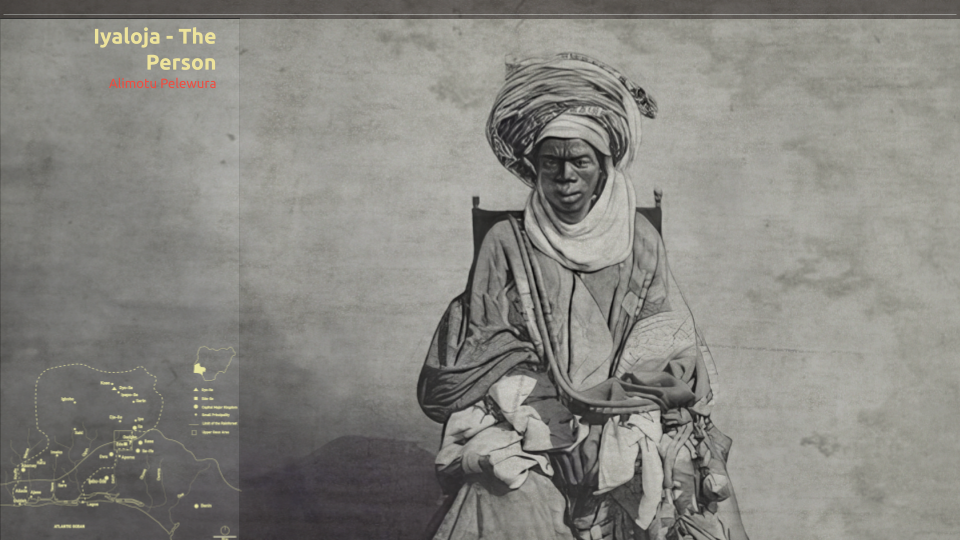
The Yoruba word “Iyaloja” translates to “Mother of the Market” and refers to the marketplace’s primary authority in traditional Southwestern Nigeria. According to Clark (1994), this position arose in part due to the historical division of labor by gender in Yoruba society as a result of the following:
- Urban Settlement Pattern and Security: During the 19th century, frequent wars made farmlands outside of towns dangerous. Men became responsible for both farming and defense, leaving women to stay within the safer town walls. This naturally led women to take on roles in trade and other activities within the markets.
- Colonial Influence and Economic Specialisation: Cash crops like cocoa and palm oil, introduced during colonialism, incentivised men to focus on agriculture as a more profitable way to support their families. This further solidified the existing gender division of labour
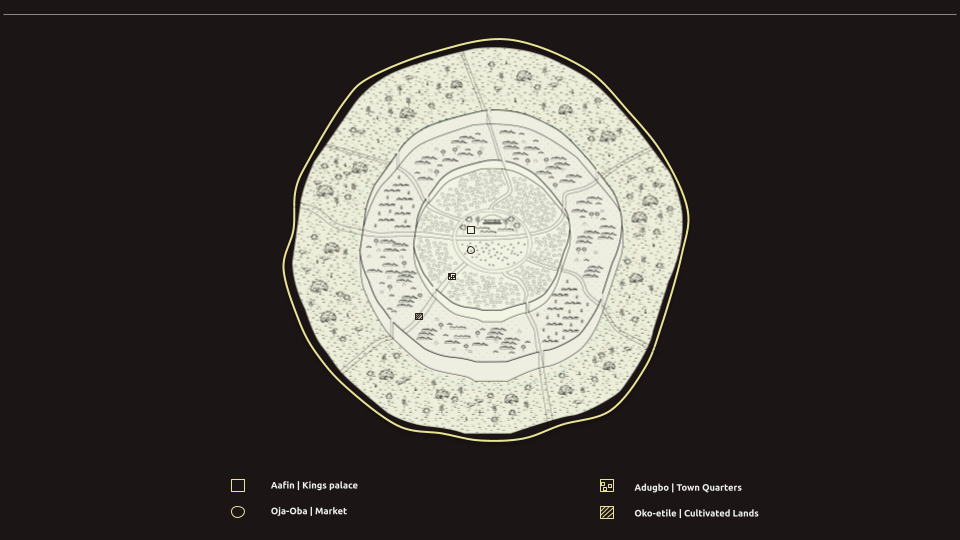
Despite Yoruba society’s patriarchal structure, the Iyaloja held a unique and powerful position. Appointed by the Oba himself, they commanded immense respect and wielded significant influence due to their direct accountability to him. Acting as a bridge between the market community and the ruling power, Iyalojas also oversaw trade within the community and with neighboring ones.
However, the arrival of British colonial rule significantly diminished their power. While their market duties continued, the presence of British governors and tax collectors shifted control to government agencies, a system that persists even after independence.
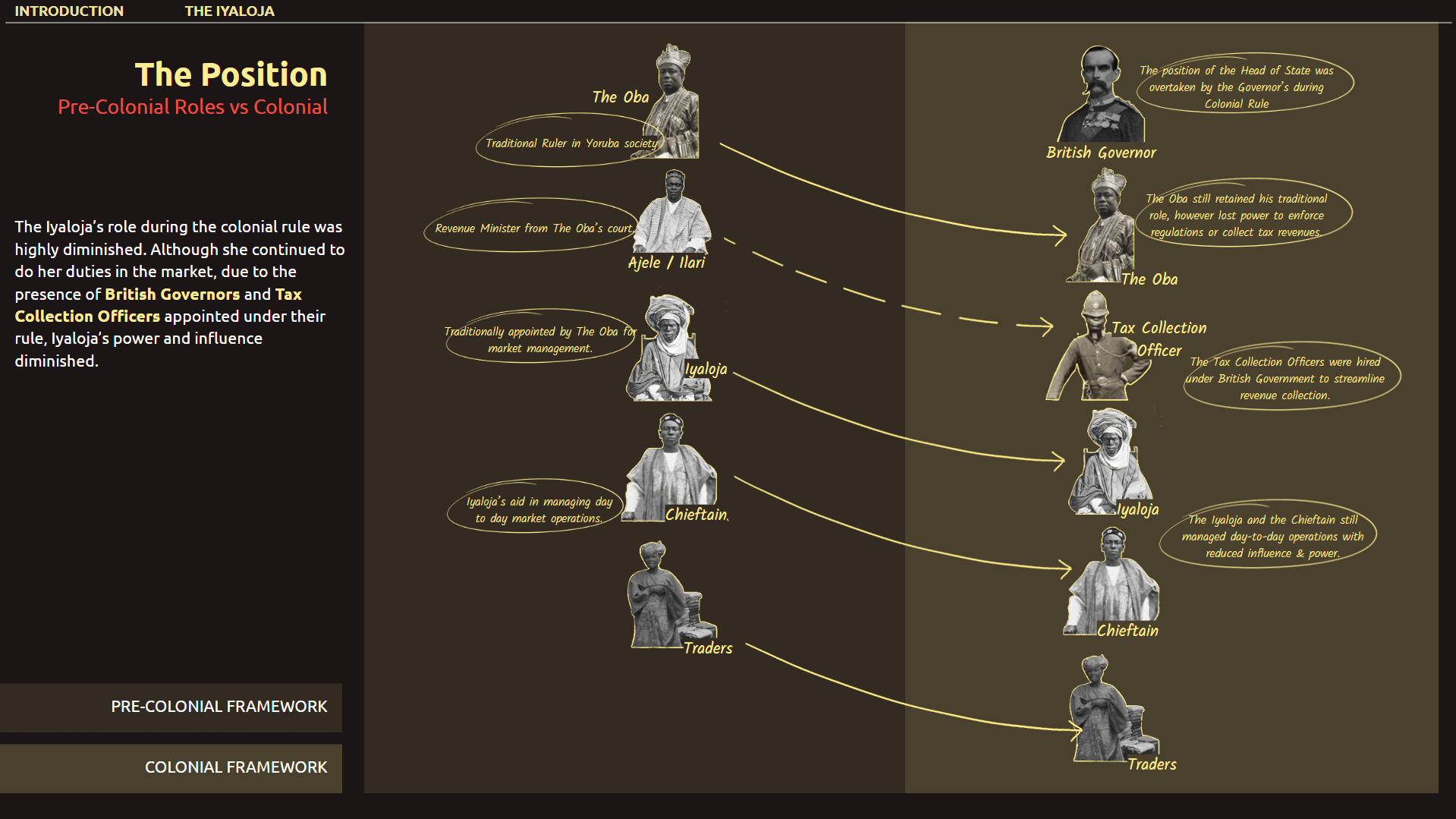
Iyaloja – The Concept
Wole Soyinka’s play, Death and the King’s Horseman, explores the Iyaloja not just as a powerful figure, but as a symbol of tradition and order. Iyaloja, in the play, represents the voice of upholding tradition and the importance of fulfilling one’s duty to the community. Her character stands in stark contrast to Elesin, the King’s Horseman, who ultimately fails in his obligation. The author portrays the Iyaloja is an opposition to the colonial forces that threaten tradition. Through two key scenes we see her use her power and influence strategically to create opportunities for the king’s horseman to fulfill his duty.
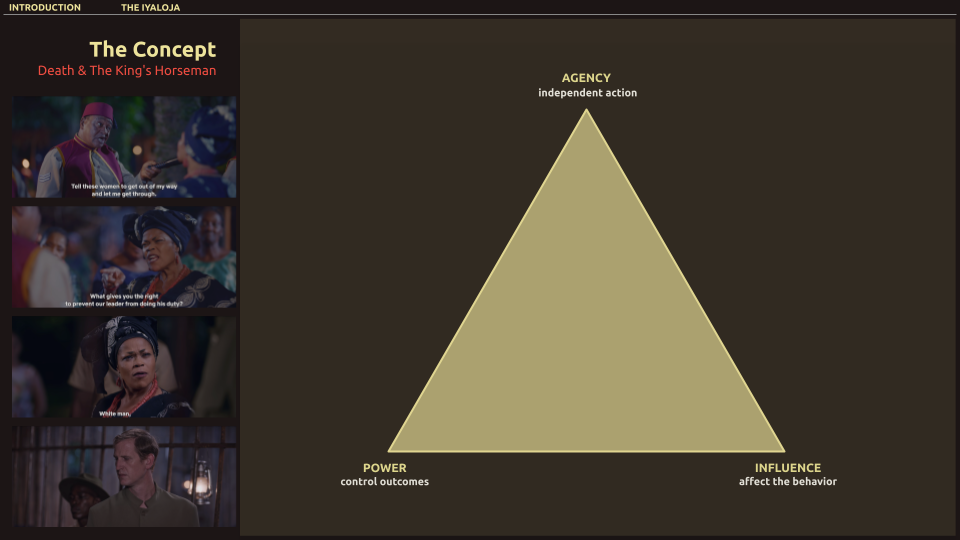
Marketplaces in Lagos
Like other major cities around the world, Lagos thrives on trade. Markets are therefore central to its development, attracting people and driving economic activity. The Lagos Waste Management Authority (LAWMA) reports a staggering 425 markets within the state itself, excluding the numerous street vendors operating on the fringes. Among these, Yaba Market stands out for two major reasons:
- The market gained national attention in December 2018 when women bravely protested against harassment by male market vendors.
- The market was one of the first chosen for Lagos’ redevelopment efforts after it experienced major fires in 2004 and 2007 (Komolafe, 2016).
Lagos aspires to become a world-class city, prioritizing aesthetics and infrastructure development. This vision, however, clashes with the reality of many residents who rely on informal economies for survival. Beyond market demolitions, the Lagos State government enforces policies that criminalize informal trade (Lawanson, 2014). For example, the Lagos State Ministry of Environment’s 2011 classification groups street trading alongside public defecation and littering as environmental offenses. These offenses are punishable by fines, seizure of goods, and even imprisonment for first-time offenders (Lawanson, 2014).
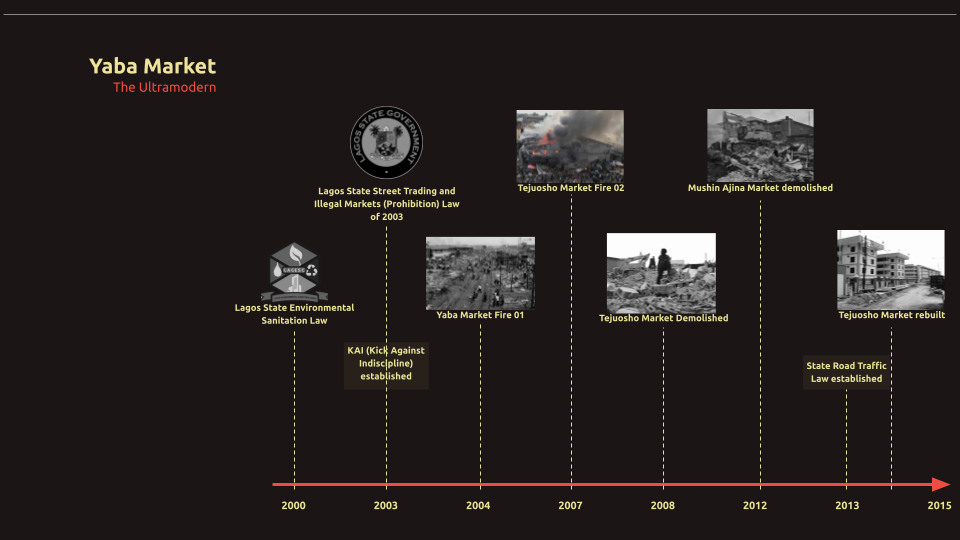
Site analysis
Yaba Market occupies a central location within Lagos’ most densely populated area. This is evident from above by its lower nighttime light signature compared to its surroundings. The market sits at the heart of four neighborhoods: Lagos Mainland, Somolu, Surulere, and Mushin. These areas boast high accessibility, with Yaba market being particularly well-connected within a 1200-meter walking radius, as revealed by network analysis.
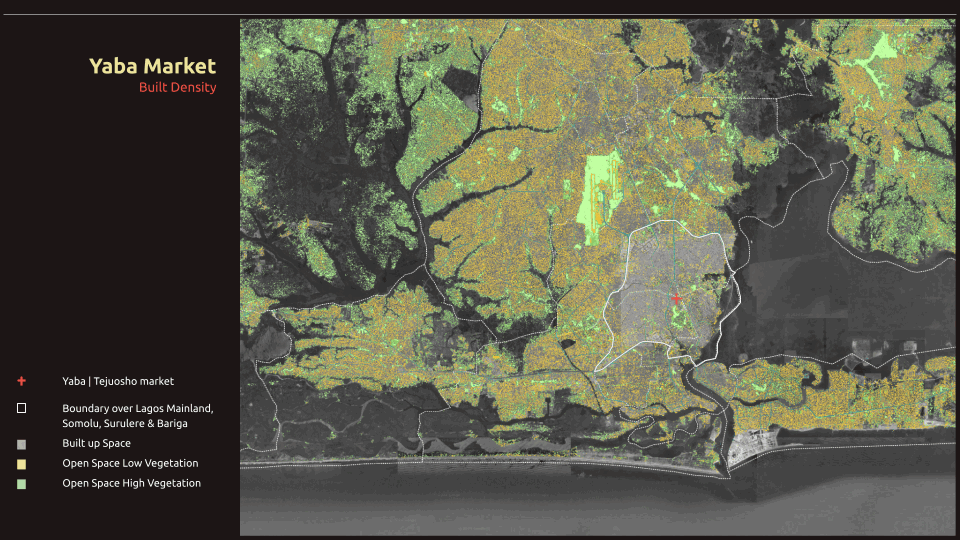
Tejuosho Market’s centrality has turned it into a magnet for infrastructure projects. This is clear from the area’s ongoing development, including the market’s demolition in 2008 for reconstruction, the addition of a bus park in 2018, and the recent completion of a train station and overhead bridge in 2023.
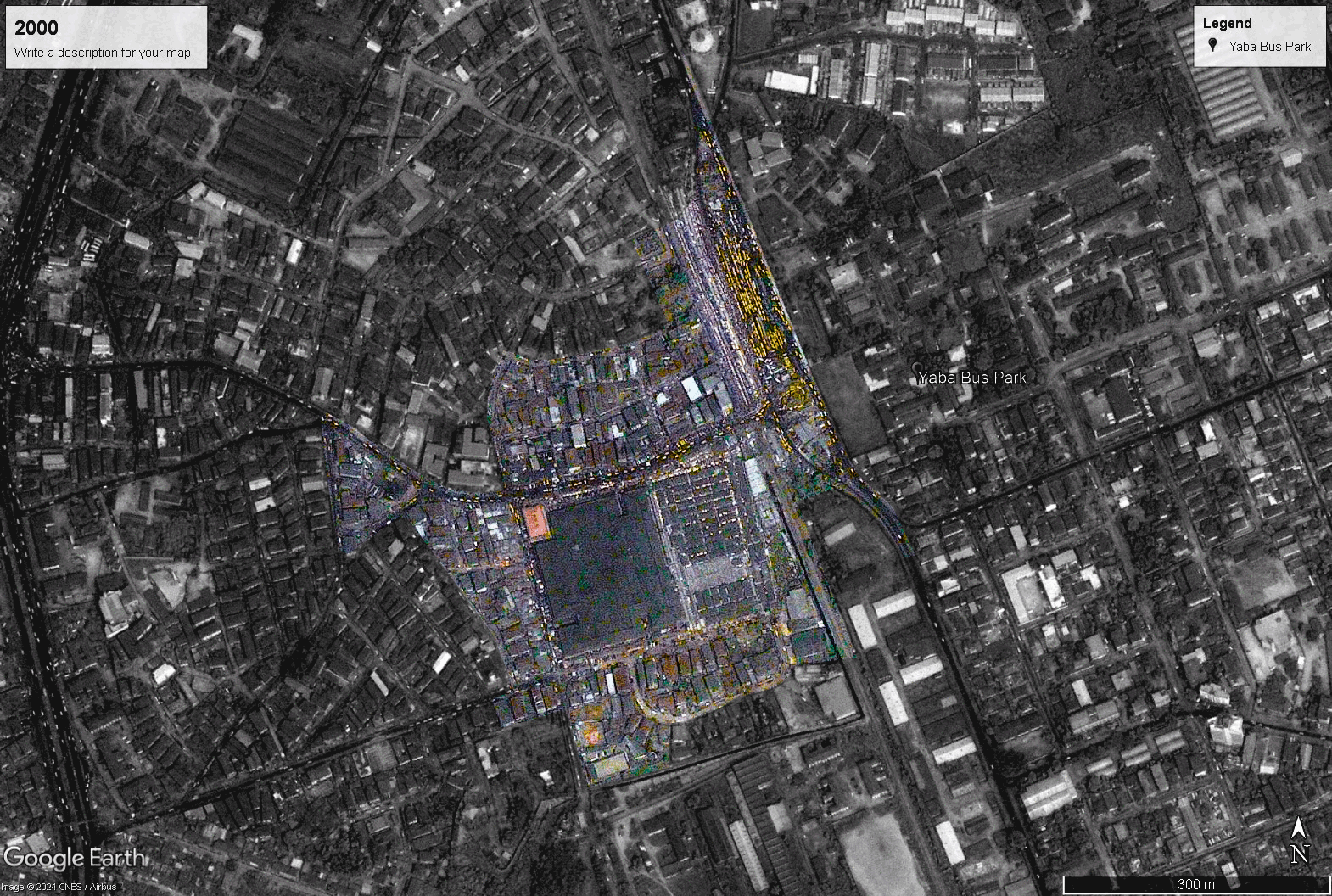
Despite its re-opening in 2014, the new Tejuosho Market with its state-of-the-art facilities is only filled by 30%. (Komolafe, 2016) (Lawanson, 2014). This is because the rents are too high for many of the original traders, who are now relegated to open spaces on the ground floor and around the new market complex. The rent hikes are substantial; the smallest shops costing a staggering $13,800 in 2013 compared to just $400 in 2007. Even the average shop space rent has skyrocketed to $7,000, making it unaffordable for many previous tenants (Lawanson, 2014).
According to Mitullah in 2006, the area around the market has transformed into a network of street vendors, each with their own spatial configuration. Mobile hawkers weave through the crowds with their wheelbarrows, while roadside stall owners display their wares from baskets and trays on the floor. Semi-permanent traders utilize makeshift stalls, and established businesses operate from kiosks and containers (Lawanson, 2014).
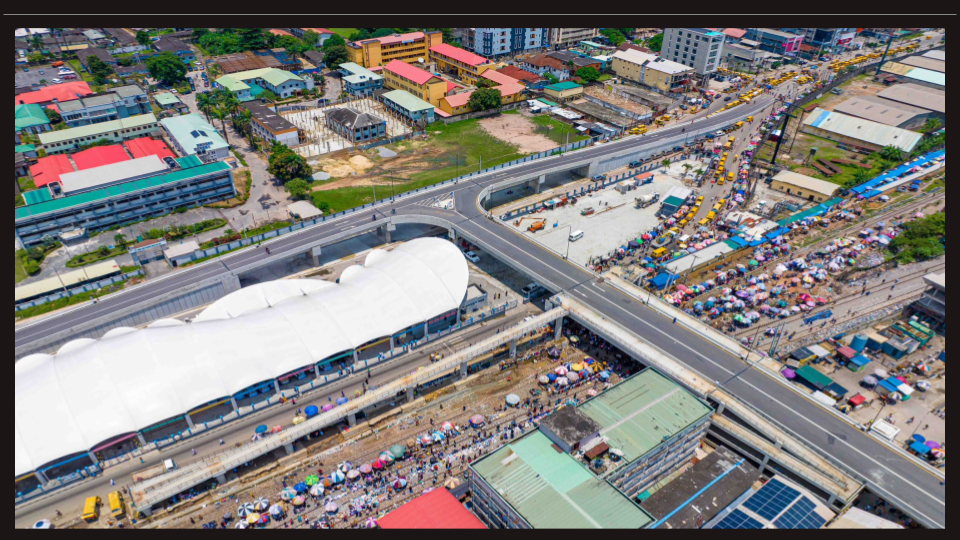
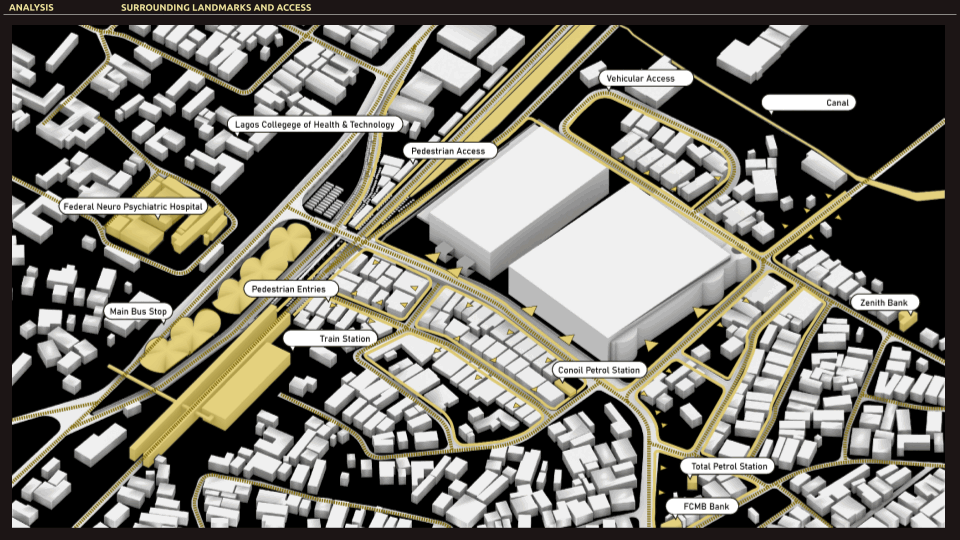
Eye Level Analysis
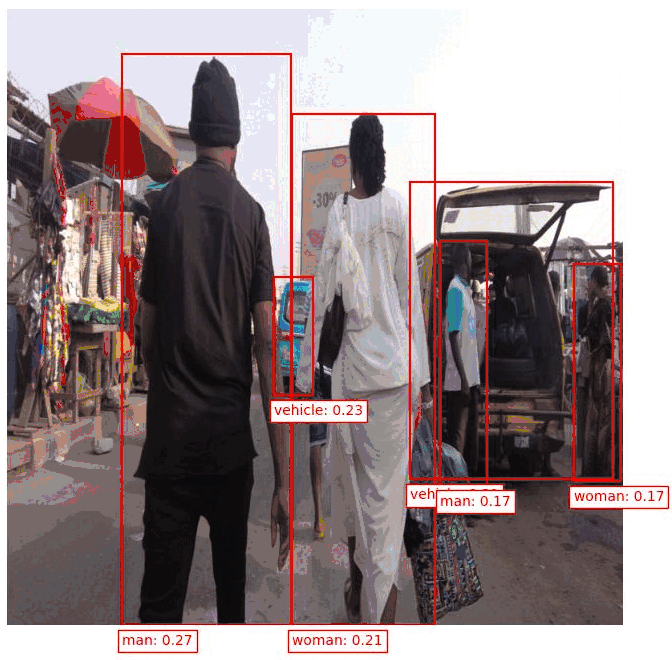
The object detection analysis shows nearly equal numbers of men(42.2%) and women(48.8%), with women slightly prevailing. Vehicles occupy 9.7% of total space when distributed between people & vehicles. This age distribution was determined by manually estimating ages from video footage, showing that the 26-35 age group dominates for both genders, while the 18-25 and 35-45 age group also includes a significant number of women.
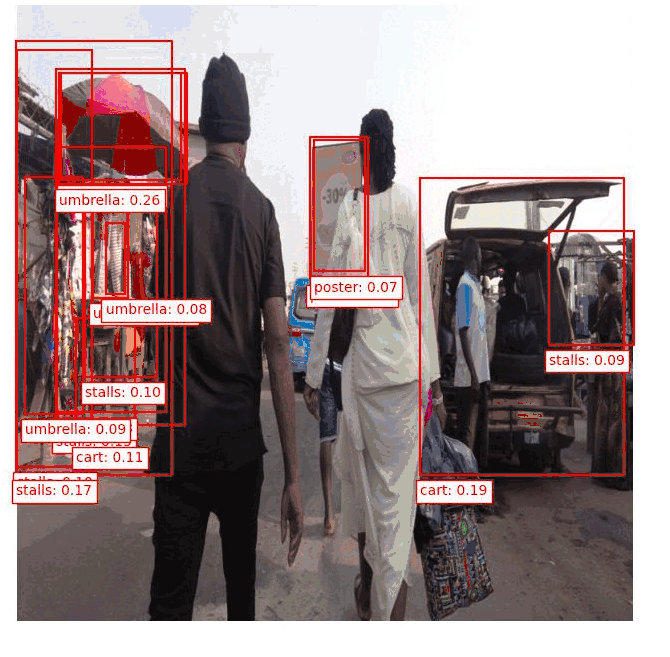
Street Vendor Stalls: Material Breakdown
Reclaimed Wood: 27.6%
Fabric (for Umbrellas): 31.8%
Wicker/Plastic Baskets: 17.2%
Flex/Paper Posters (Signage): 23.4%
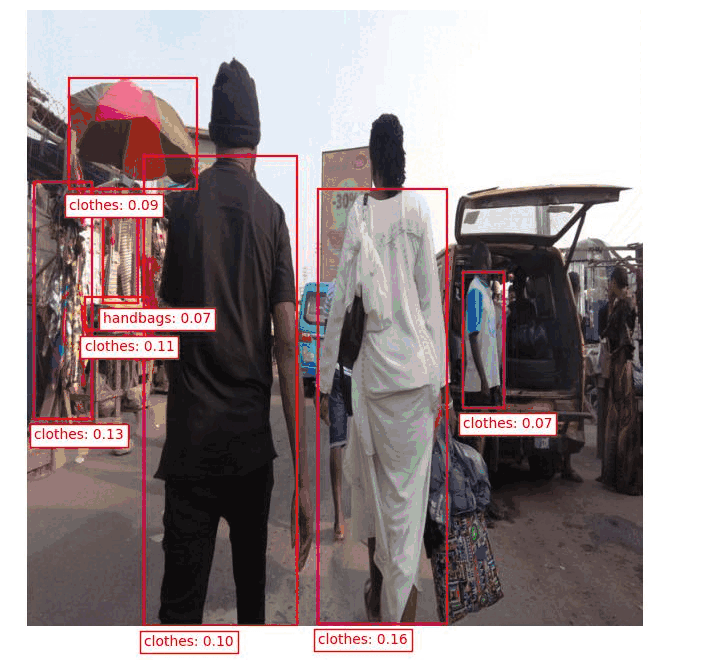
Types of Goods Sold
The goods sold within the market are predominantly focused on essential daily items like food and clothing, highlights the significant role of women who primarily sell there, underscoring their crucial contribution to meeting the community’s everyday needs within the market’s diverse product range.
Current Governance Model
The Iyaloja – led administration is a decentralised structure with every market being under the jurisdiction of one Iyaloja. Multiple Iyalojas across local areas manage respective market activities, and report to the Iyaloja General. The Iyaloja General oversees market administration & regulation and financial oversight. In addition to the Iyaloja – led governance, there have been a few market associations where the traders had decided to form an association to aid themselves. These associations have come up as a response to the traders feeling under represented by the official authorities.
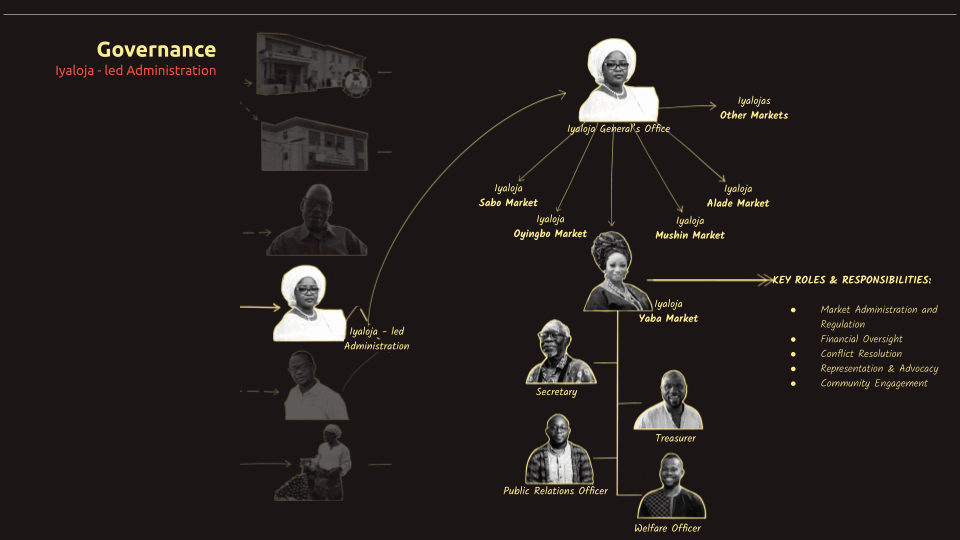
Proposal
Proposed Governance Model
In our proposed system we aim to give back the power to the Iyaloja by removing the Market Managers role as a middleman, and distribute his activities between Sub Iyalojas and Market Associations acting under the jurisdiction of the Iyaloja. Analysis reveals conflicts between Iyaloja-led governance and market associations. The proposed framework aims to include market associations in decision-making. Additionally, introduces advisory and financial partners to enable the Iyaloja to implement initiatives without state funding.
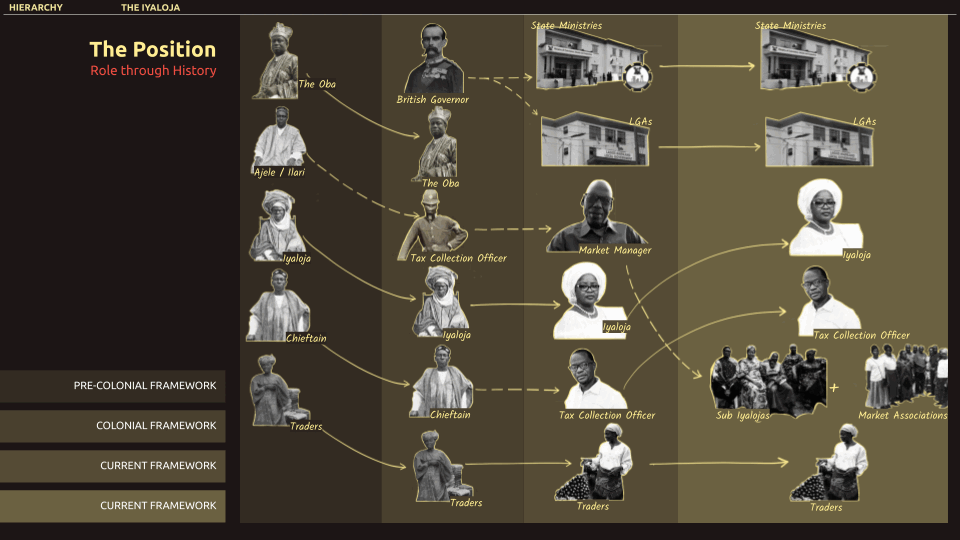
Design Proposal
Our analysis of Tejuosho Market highlighted critical issues: economic disparity, safety concerns, overcrowding, and a lack of clear regulations. Recognizing these challenges, we aimed to develop a solution that not only addresses them but also unlocks the potential of street markets. Inspired by the powerful figure of the Iyalojá, a symbol of agency and influence, we designed the Iyaloja Center – a vibrant hub that fosters a strong market community.

The Iyaloja Center goes beyond being a physical space. It’s a dynamic platform designed to empower vendors and revitalize the market environment. Four key functions, each echoing the essence of the Iyalojá, are integrated into our design:
- Registration Corner: A dedicated area will facilitate a gender-balanced registration system, granting vendors formal recognition and legitimacy within the market (corresponding to the power apex of the triangle).
- Advertising & Signage: The center will offer advertising and signage support to increase vendor visibility and attract more customers to their stalls (corresponding to the influence apex of the triangle).
- Loan System: A loan system will provide financial opportunities for growth, promoting women’s economic independence (corresponding to the power apex of the triangle).
- Mentorship Programme: A mentorship corner will equip vendors with valuable skills, guidance, and business strategies to navigate the market more effectively (corresponding to the influence apex of the triangle).
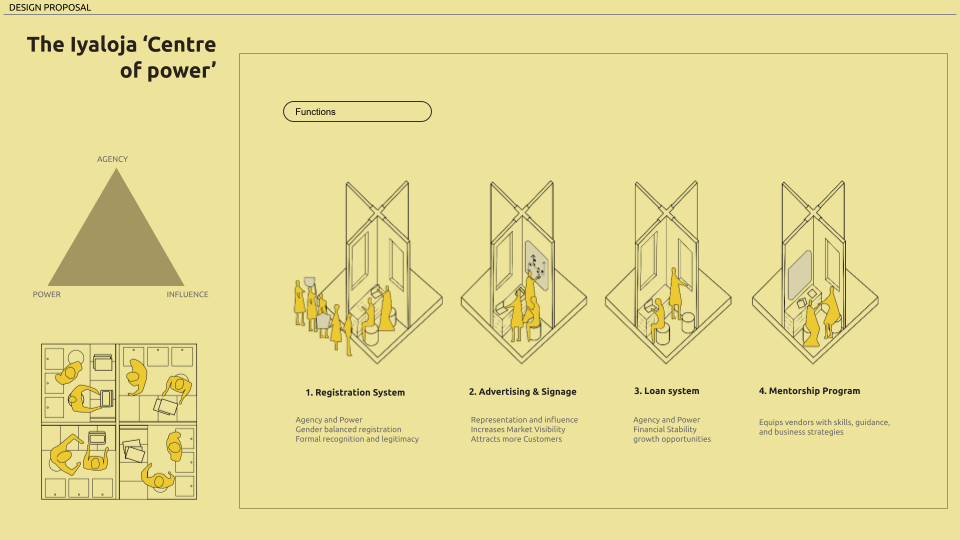
To effectively deliver these functions, we utilized innovative materials identified through video image recognition. This allows for the creation of modular, dismantlable stalls offering several advantages:
- Enhanced Security: Vendors can remove all merchandise after closing, ensuring overnight security.
- Adaptable to Change: The centres can be easily dismantled and relocated to accommodate evolving market needs and space requirements.
- Efficient Installation: This modular design allows for a quick and cost-effective set-up of the Iyaloja Centers and other market nodes.
Node Placement Strategy
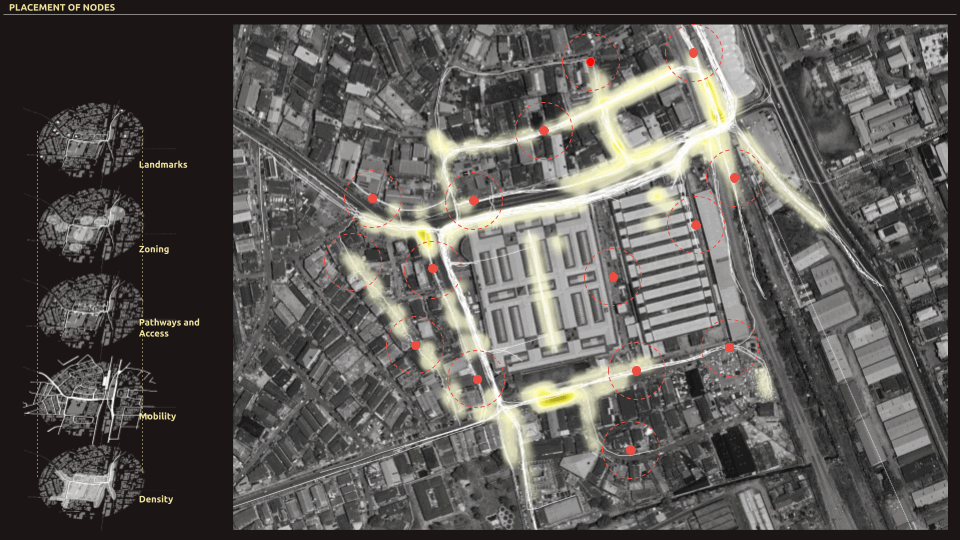
Strategically distributed across Yaba Market, the Iyalojá Centers have been placed with careful consideration of multiple factors such as landmarks, zoning, accessibility, mobility, and density. We positioned the stalls away from high-density areas to help disperse congestion, enhancing the overall flow within the market. This strategic placement also creates indirect pathways, facilitating easier navigation and connectivity within the market.
Proposal Financing
The proposal outlines a micro financing program to be initiated and implemented by the administration.
Benefits for Participating Traders:
- Reduced Tax Burden: Traders who take out loans will receive a subsidy on their monthly taxes, easing their financial burden.
- Registration Incentive: Registration with the official market association is a requirement for loan eligibility. This encourages unregistered traders to formalize their businesses, benefiting both the market and the vendors.
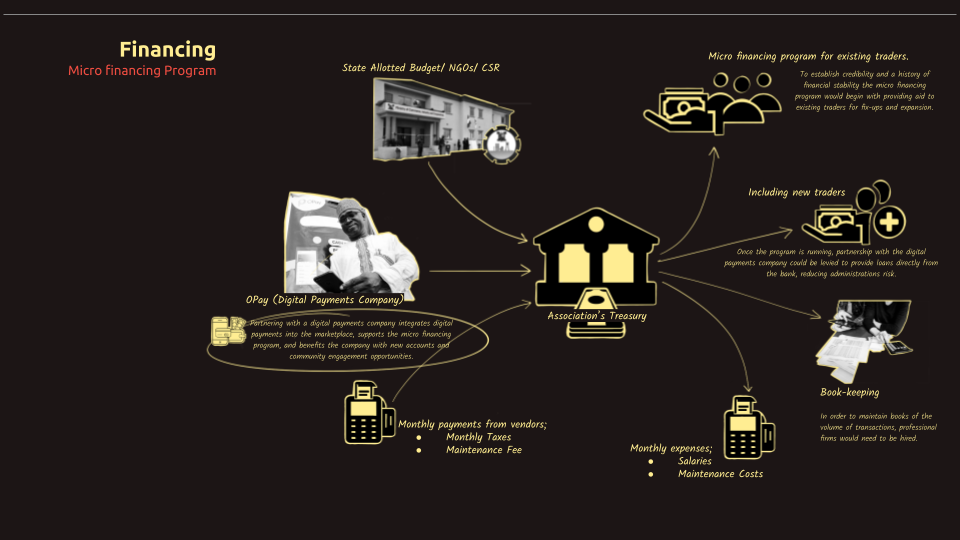
Conclusion
This project examined the tension between opportunity and vulnerability faced by women vendors in Lagos’ markets. Inspired by the historical power of the Iyaloja market leader, we propose a collaborative approach to revitalize Yaba Market. This plan includes strengthening the Iyaloja’s role, establishing Iyaloja Centers with registration, loan, and mentorship services, utilizing modular stalls for market flexibility, strategically placing these centers, and offering a micro-financing program to incentivise registration. By implementing these strategies, we aim to create a more empowering and secure marketplace the vendors.
References
- Bravo, L., Roji, A., Toffa, T., & Malonza, J. M. (2022). Public space and placemaking in African cities. The Journal of Public Space, 7(1). https://www.journalpublicspace.org
- Clark, G. (Ed.). (1994). Where Women Work: Gender and Economic Opportunity in Africa. International Labour Office.
- The National Archives. (2022, February 7). Ogu Umunwanyi, Ekong Iban, Women’s War: A story of protest by Nigerian women [Blog post]. Retrieved from https://blog.nationalarchives.gov.uk/ogu-umunwanyi-ekong-iban-womens-war-a-story-of-protest-by-nigerian-women/
- Halimat T. Somotan (2018). Lagos Women in Colonial History: a biographical sketch of Alimotu Pelewura. Vestiges: Traces of Record Vol 4 (2018) ISSN: 2058-1963 http://www.vestiges-journal.info/
- Lawanson, T. (2014). ILLEGAL URBAN ENTREPRENEURSHIP? THE CASE OF STREET VENDORS IN LAGOS, NIGERIA. Journal of architecture & ENVIRONMENT Vol. 13, No. 1, April 2014: 45- 60

